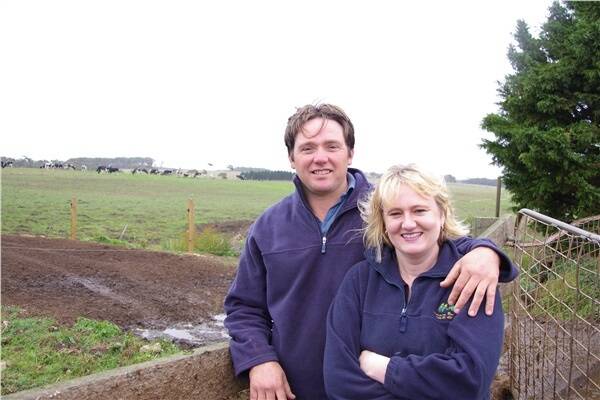
PLASTIC wrapped silage bales are vital to Brian and Kay Antony’s Portland dairying operation.
But getting rid of the discarded plastic was proving a real issue.
Mr Antony’s solution was nothing if not simple – a single box wool press that he has lined with plywood so the discarded plastic can be pressed into bales and then secured with twine.
This process can also be used to compact baler twine and netting from hay bales that have been fed out.
Mr Antony said the local recycling depot was happy to receive the plastic, twine and netting with the only limitation being that each type of material had to be baled up separately.
His invention won him the Dairy Vator prize at this year’s Great South West Dairy Awards.
Mr Antony said he was happy to publicise the unit in the hope that other farmers could take up the same option.
He said the wool press had been given to him by a farmers who had gone out of sheep production so his invention had basically cost nothing – “pretty good value I think.”
The Antonys are committed dairy farmers in one of the most favoured dairy regions in the State with Brian the third generation of his family to own this property that was converted to dairy farming 20 years ago.
The region around Portland is well suited to dairy farming with its annual rainfall that the Antonys say used to average 900 millimetres a year but had been back to a still respectable 650-700mm of late.
But that had meant shorter seasons that had been challenging for farmers, especially following the unexpected drop in milk prices earlier this year.
Mr Antony said their options for the future would probably involve some increase in the scale of their operations and that was already being planned with a 23-hectare centre pivot about to be installed.
Unfortunately the power lines supplying the Portland aluminium smelter bisect their farm but depending on the water available it might in future mean running two half circles.
Mr Antony said the long term trend to more milk from fewer cows in bigger herds on larger farms showed no real sign of changing and that would suit the Portland region where there was still scope for further growth.
He said people were also learning to be better farmers and better business managers and that meant they would be better able to cope with whatever challenges might arise.
*Extract from full report in Stock & Land, May 14.

